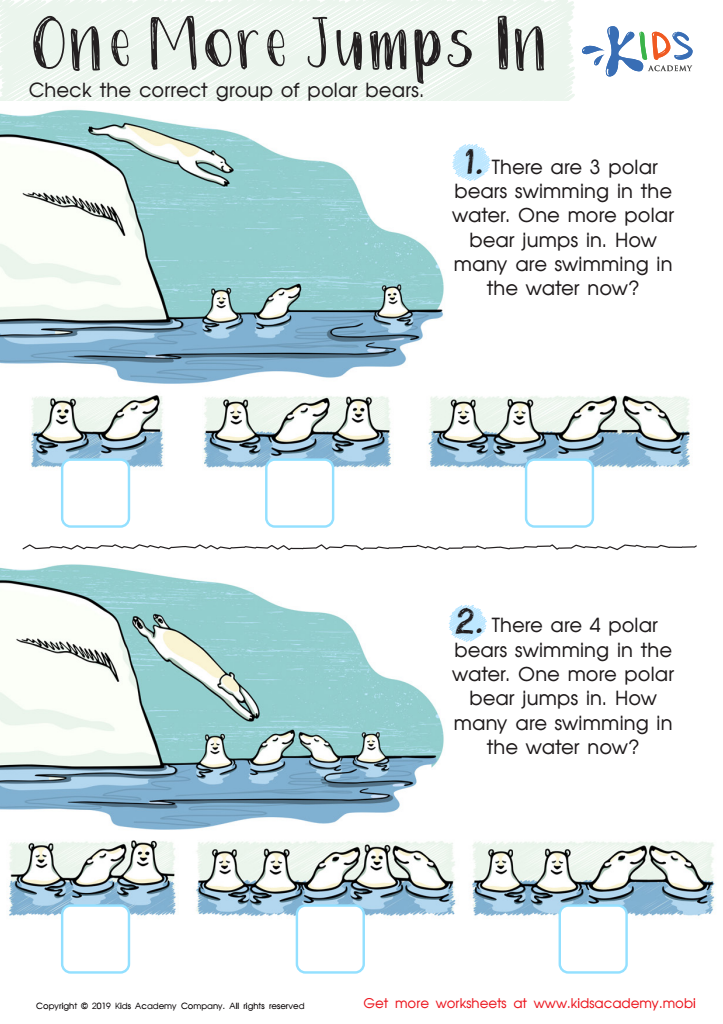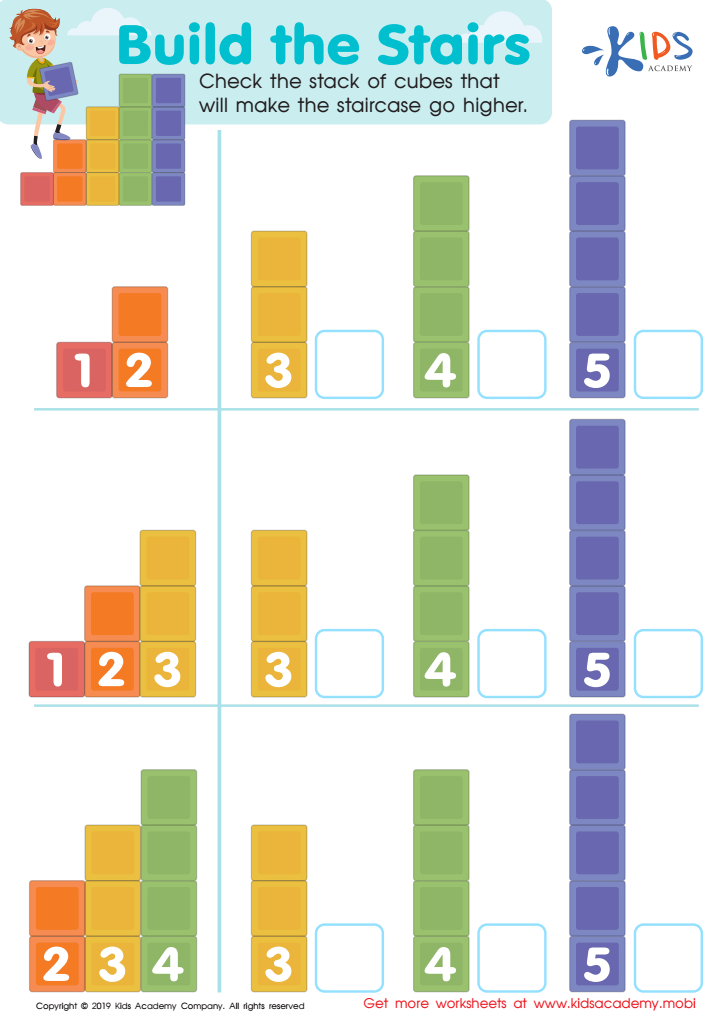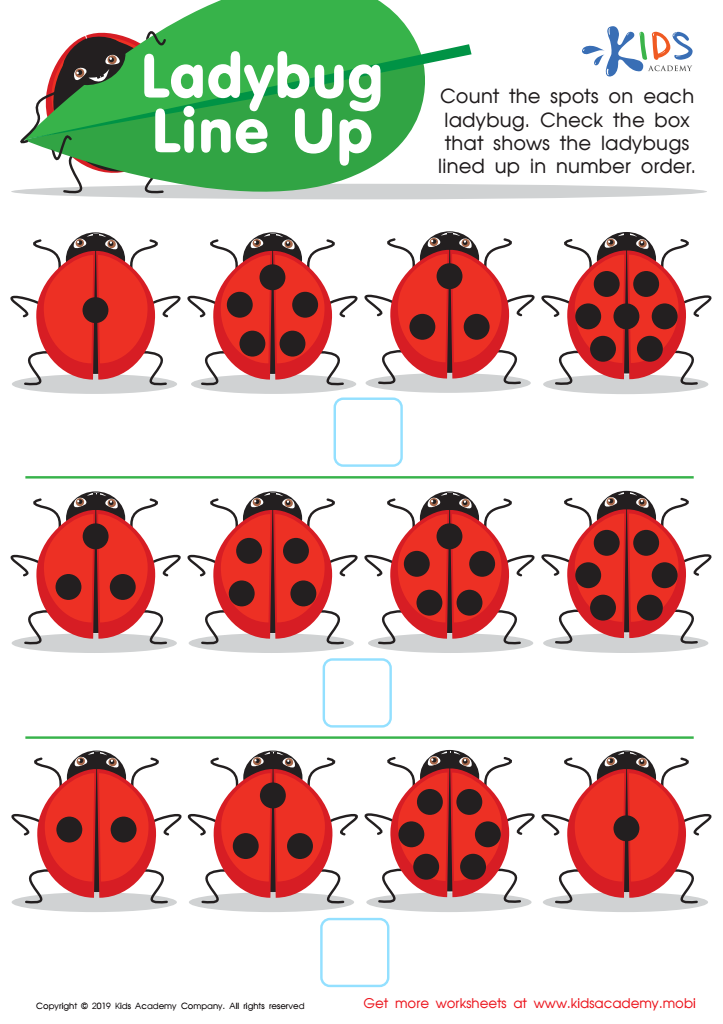Understanding sequencing Easy Worksheets for Ages 4-6
3 filtered results
-
From - To
Dive into the world of sequencing with our easy worksheets tailored for children aged 4-6. At Kids Academy, we've crafted activities that simplify complex concepts by leveraging fun, engaging exercises. Our worksheets help children understand the order of events, build critical thinking skills, and foster logical reasoning. From arranging daily routines to identifying patterns, these activities are designed to be both educational and enjoyable. Perfect for early learners, they support cognitive development and prepare your child for future academic success. Discover the joy of learning with our age-appropriate, easy-to-follow sequencing worksheets today!


One More Jumps In Worksheet


Build the Stairs Worksheet


Ladybug Line Up Worksheet
Understanding sequencing is a fundamental skill that parents and teachers should prioritize for children aged 4-6, as it forms the basis for many other essential cognitive and academic abilities. Sequencing involves recognizing the logical order of events or steps, which is crucial for reading comprehension, mathematical concepts, and everyday routines. For example, children must grasp sequencing to understand storylines, follow instructions, and solve problems effectively.
At this developmental age, children's brains are rapidly growing, making it an ideal time to instill foundational skills. Playing sequencing games and engaging in related activities can make learning fun while building critical thinking and organizational skills. Proper sequencing also supports language development and communication, as children learn to narrate events in order and follow conversations more easily.
Moreover, routines structured around sequencing foster a sense of predictability and security, essential for emotional development. When children know what to expect next, their environment feels safer, reducing anxiety and encouraging cooperative behavior.
By focusing on sequencing, parents and teachers give children a head start in various competencies such as literacy, numeracy, and social skills. Consequently, fostering sequencing abilities equips young learners with the tools they need for future academic success and life skills, making it a crucial aspect of early childhood education.

 Assign to My Students
Assign to My Students
















